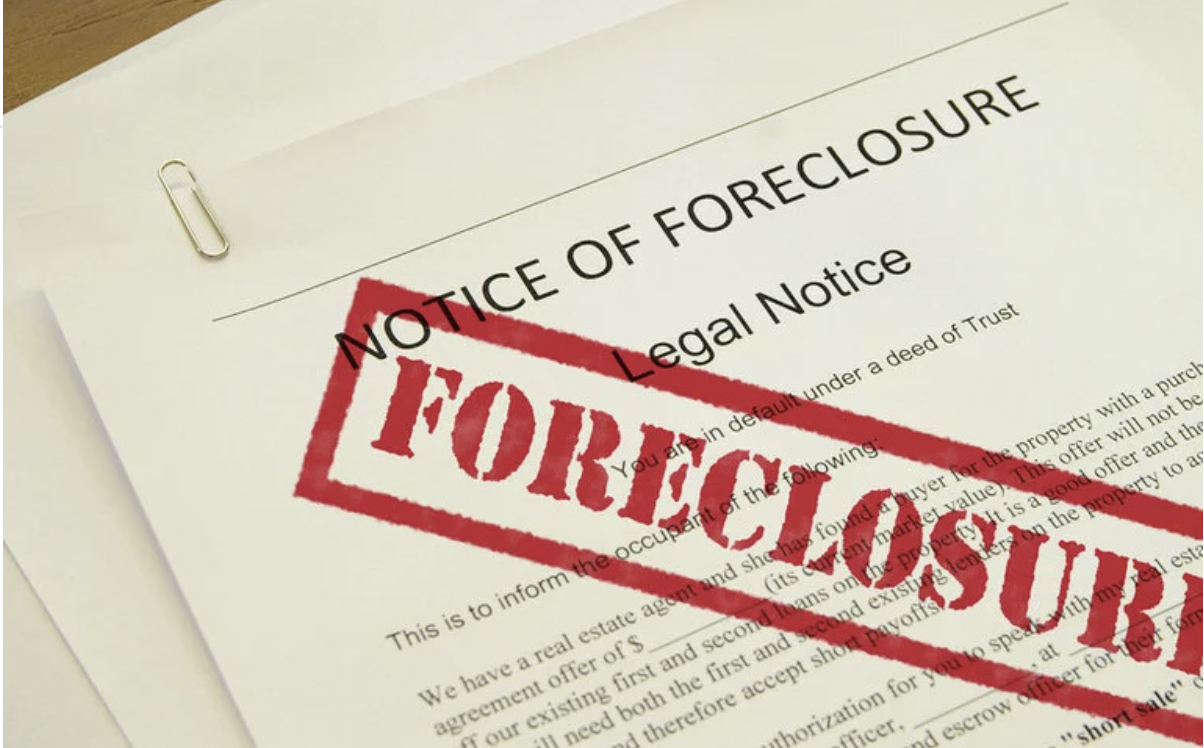SUMMER 2024 NEWSLETTER
MENU

Foreclosure Abuse Prevention Act in a Nutshell


-86b6dfb5b25a2ab3fc2b5612a12de3a3300c5e82.png?v=05282024155145)

The court’s ruling had the effect of extending the statute of limitations well beyond the six-year statute of limitations that would otherwise limit a lender’s right to foreclose and elect to accelerate the maturity of the debt on a borrower’s second loan default.
The Legislature saw Freedom Mortgage as one of a series of court decisions that had “exacerbated” an “ongoing problem with abuses of the judicial foreclosure process and lenders’ attempts to manipulate statutes of limitations,” thereby “[giving] mortgage lenders and loan servicers opportunities to avoid strict compliance with remedial statutes and manipulate statutes of limitations to their advantage.” (Assembly Mem in Support of 2022 Assembly Bill A7737B, L2022, Ch. 821 at 1).
Adam Leitman Bailey P.C. Gets Sponsor to Cure all Defects in New Construction Condominium in Record Time

How Adam Leitman Bailey, P.C. Secured a Million-Dollar Award in a Major Case on Attorneys’ Fees


Adam Leitman Bailey, P.C. Recovers Substantial Rental Arrears From A Commercial Tenant Which Violated The Payment Condition Of A Yellowstone Injuction


Adam Leitman Bailey, P.C. Defeats Multiple Attempts By Borrower To Vacate A Foreclosure Sale



A Comprehensive Guide to The Good Cause Eviction Laws
Adam Leitman Bailey, P.C. Defeats Motion to Vacate Note of Issue That was Filed One Day Too Late


Adam Leitman Bailey, P.C. Client Receives “Probable Cause” Ruling Determined after Failing to Pay Commissions Owed and Committing Unlawful Racial Discrimination

Adam
Leitman
Bailey

Adam Leitman Bailey, P.C. Secures Landmark Decision for Title Insurer Establishing New Precedent Regarding a Title Insurers’ Obligations Related to Consolidated Mortgages


The title insurer issued a title insurance policy in connection with a mortgage in the amount of $1,995,000.00. That mortgage was assigned twice. Thereafter, a Gap Mortgage in the amount of $1,005,000.00 was issued, and then consolidated with the original mortgage to form a single lien in the amount of $3,000,000.00 by Consolidation, Extension, and Modification Agreement (“CEMA”). In connection with the CEMA, the lender purchased a new title insurance policy in the insured amount of $3,000,000.00 from a new title insurer. Following the CEMA, the loan was assigned two more times.
The lender commenced an action to foreclose the CEMA. After the defendants answered and alleged that the loans should be deemed null and void, the lender made a claim to the title insurer in connection with the original $1,995,000.00 policy. The title insurer denied the lender’s claim, and the declaratory judgment action ensured.
Adam Leitman Bailey, P.C. quickly moved to dismiss the action. Adam Leitman Bailey, P.C. argued that the title insurer’s liability is based on contract law and is governed by the terms of the policy. The policy provides that the “Insured” includes the owner of the mortgage and “each successor in ownership of the indebtedness”. However, the policy only remains in effect as long as the “Insured retains an estate or interest in the land”.
Adam Leitman Bailey, P.C. argued that the CEMA made clear that it “will constitute in law a single lien upon the property”, therefore, any interest in the land had by the original mortgage was terminated by the execution of the CEMA. Thus, the original title insurance policy would have terminated. Adam Leitman Bailey, P.C. argued that it was clear that the lender was aware of this as lender took out a new title insurance policy for the full face
In opposition, the lender cited to case law that an original mortgage exists independently from a CEMA. Lender argued that the original mortgage was independent, and therefore, the policy should still remain in effect.
In reply, Adam Leitman Bailey, P.C. argued that the cases cited by the lender did involve title insurance. Adam Leitman Bailey, P.C. argued that it was completely irrelevant as to whether the original mortgage exists independently from the CEMA, because even if the mortgage still does exist, it does not retain any estate or interest in the land since the CEMA became a single lien against the property. Therefore, the original policy would have terminated upon the execution of the CEMA regardless of whether the original mortgage exists independently.
The Court adopted Adam Leitman Bailey, P.C.’s arguments finding that the lender argued that it “should be considered a successor in ownership under the policy because the first mortgage does not cease to exist once consolidated." However, the cases cited by plaintiff for this provision do not concern the issue of title insurance; specifically, as relevant herein, whether for the purposes of the policy the first mortgage continues to secure a separate interest or estate in the mortgage property”.
This decision is a tremendous win for all title insurers. In New York, many times mortgages are assigned instead of being satisfied in order for parties to save on mortgage recording taxes. By issuing this decision, the Court gives protection to title insurers who have issued a title insurance policy on an old mortgage that has now been consolidated.
Jeffrey R. Metz, Esq., and Danny Ramrattan, Esq. at Adam Leitman Bailey, P.C. secured this result for its client.
Adam Leitman Bailey, P.C., Protects Landlord’s Rights Under a 25-Year Old Easement

Colin E. Kaufman
Vendor sold the warehouse in 2012 to Adam Leitman Bailey, P.C.’s clients who developed the property as a high-end residential condo; the former driveway was converted to use as a courtyard/rear access for unit owners.
Following a two day bench trial in Kings County Supreme Court, the Court held that the easement had not been extinguished, that the area could be used “… for any legal purpose [clients] see fit,” and that Plaintiff had no right to cross over the clients’ property.
Adam Leitman Bailey, P.C. Prevails at Making New Law as Appellate Division Finds Second Sponsor Not Liable For Condominium Building Defects



Adam Leitman Bailey, P.C. Preserves Auction Sale For An Innocent Purchaser

Colin E. Kaufman

The firm was retained to represent an entity which purchased a property for valid consideration after the prior owner failed to satisfy a mechanics lien and never sought to redeem.
After the sale, the prior owner claimed that it had not been given the notice of the sale as had been directed by a prior court order. This, notwithstanding that the court notification system indicated that (i) the matter would appear in the foreclosure part on a date certain and the prior owner’s then attorney sought to adjourn the date and (ii) the prior owner and new counsel were at the courthouse on the auction date but rather than appear in the foreclosure part then stayed in the hallway of the courtroom of the judge and went to the foreclosure part after the sale had taken place.
CONDOMINIUM AND COOPERATIVE
One-Step Solution


Choosing Between Multiple Home Offers


Defending a Westchester County Cooperative, Adam Leitman Bailey, P.C. Prevails in a Defamation Action
Winning a Loft Law Case: The Long Winding Road to Weaponing the Loft Law and Rent Stabilization Code to Finally Prevailing at Appellate Division
I previously represented a long-term resident of a Tribeca apartment in the successful appeal of a CPLR Article 78 determination permitting the building’s owner to remove the building’s only elevator from service.


Vault Names Adam Leitman Bailey, P.C. Top 150 Law Firms to Work For Under 150 Attorneys for 2024

Adam Leitman Bailey Named a City & State’s Trailblazer in Law

Adam Leitman Bailey Honored with Connect CRE’s 2023 New York & Tri-State Lawyers in Real Estate Award

U.S. News & World Report Adam Leitman Bailey, P.C. a 2024 Best Company to Work For: Law Firm

Adam Leitman Bailey, P.C. – The Inside View
Asli Celik Receives the 2024 Raymond “Hap” Harrison Scholarship



The History of The Raymond "Hap" Harrison Scholarship

GIVING IS SECOND NATURE TO NEW MILFORD ALUM
Adam Leitman Bailey, a successful attorney, is the New Milford Education Foundation's "Humanitarian Of the Year"
NEW MILFORD — Anyone else would have been sidelined for good.
In 1987, Adam Leitman Bailey was a passenger in a car that crashed in Bergenfield. He broke both arms and his right hand and was in a coma for a few days.
But that didn't slow him down. Once out of the hospital, Bailey — a runner on the New Milford High School cross-country team — quickly returned to training, despite having casts on both arms.
Bailey ran a record season that year, achieving all-county honors, and was presented with an Award of Courage from his coaches and teammates just before graduating in 1988.
“That incident really tells you a lot about Adam,” his former coach, Raymond "Hap" Harrison, said from his Weare, N.H., home. “It didn’t set him back — it made him tougher."
Harrison added, "His determination on the track is a character trait that carried over throughout his life.”
Bailey, established a scholarship in his former coach’s name in 2008, the same year Harrison retired.
Each scholarship recipient also interns at Bailey's law office the summer between his or her junior and senior years.
“Since he graduated, Adam has constantly kept an eye on New Milford public schools," said Raymond Cottiers, chairman of the foundation’s gala committee. "A large number of students have benefited from his financial help, and for that, we decided to honor him with this award.”
Bailey said he is “extremely honored” to receive the award.
Today, Bailey is a best-selling author and successful real estate attorney in Manhattan.
But at 13, when he and his mother moved to New Milford, he was an easy target for bullies.
“New Milford is a fighting town, and it taught me to fight hard," Bailey said.
Track and cross-country, he said, were his escape. And, he said, Harrison was like a father figure to him.
Bailey said the struggles he endured as a child — including the 1987 accident — shaped the way he is now.
"I'm very appreciative for all New Milford has given me," he said.
Bailey said he looks for that same fighting spirit in the students he chooses for his scholarships.
“I want the hungriest and smartest kids you can find,” Bailey said. “I’m very picky.”
Scholarship recipients say Bailey’s help runs much deeper than the money he has donated.




